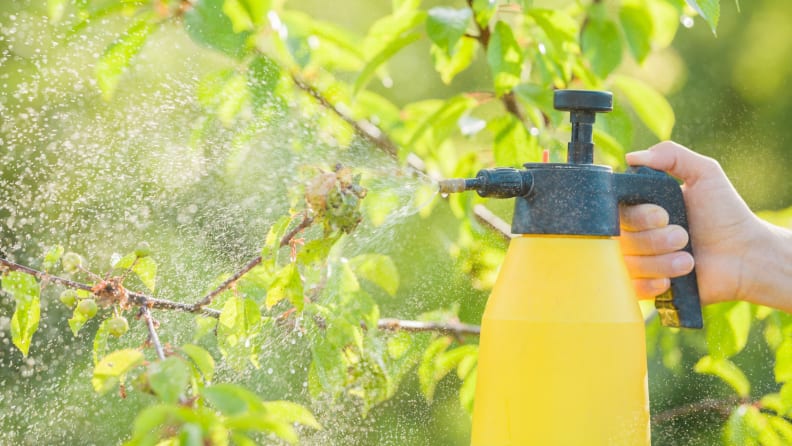Safer Ways To Get Rid Of Pests: Organic Pest Control For Plants
Organic pest control for your plants is a safe and effective way to rid your plants of pests without using harsh chemicals or other toxic substances.
It involves using natural and organic materials to repel or kill pests without harming the environment or your plants. Organic pest control is an important part of organic gardening and requires a little bit of research and effort to be successful.
With organic pest control, you can help protect your plants from pests while also protecting your family and the environment. Here are some benefits and how to help you get started with organic pest control for plants.
Types of Organic Pest Control
Organic Pest Control is the use of natural, environmentally friendly methods to manage and eliminate pests from the home and garden. It offers a safe and effective alternative to chemical pesticides, which can be damaging to the environment, people, and pets.
There are many different types of organic pest control, each with its advantages and disadvantages.
1. Biological Control: This type of pest control relies on natural predators, parasites, and microbial agents to reduce the population of pests.
These predators and parasites, such as ladybugs and nematodes, can be bought and released into the environment to feed on pests, helping to keep their populations in check.
2. Crop Rotation and Cultivation: Crop rotation is the practice of planting different crops in the same area in different years. This helps to reduce the chance of pests and diseases building up in the soil and helps to keep the soil healthy.
Cultivation is the practice of tilling the soil to help disrupt the life cycle of pests and reduce their numbers.
3. Natural Repellents: Natural repellents are substances that are used to repel pests and discourage them from entering your home or garden. Some examples of natural repellents include garlic, peppermint oil, and Neem oil.
4. Trap Cropping: Trap cropping is the practice of planting a crop that is attractive to pests near other plants that are more susceptible to pest damage.
This helps to draw the pests away from the more vulnerable plants and allows you to target them more effectively.
5. Physical Barriers: Physical barriers are physical structures that are used to prevent pests from entering an area. Examples of physical barriers include fences, screens, and netting.
6. Beneficial Insects: Beneficial insects are insects that feed on other insects, helping to reduce their population such as ladybugs, lacewings, and hoverflies.
7. Natural Predators: Natural predators are animals that feed on pests, helping to reduce their population. Examples of natural predators include birds, reptiles, and amphibians.
8. Attractants: Attractants are substances that attract pests and help to draw them away from the home or garden. Examples of attractants include rotting fruit, sugar water, and beer.
Benefits of Organic Pest Control
1. Soil Health: Organic pest control techniques help to maintain the health of the soil and prevent the need for chemical fertilizers. This helps to ensure that the soil is rich in nutrients and free from any toxins that may be harmful to the plants.
2. Reduced Chemical Usage: It helps to eliminate the need for chemical pesticides and fertilizers, which reduce the risk of contamination and chemical exposure to the environment.
3. Enhanced Plant Growth: These pest control techniques help to improve the plant’s overall health and increase the plant’s natural defence mechanisms, leading to more vigorous and healthier growth.
4. Natural Predators: Organic pest control techniques help to provide a balanced ecosystem in which natural predators can thrive. This helps to ensure that the pest population is kept in check.
5. Cost-Effectiveness: This method is much more cost-effective than chemical pest control methods.
6. Eco-Friendly: It is much more eco-friendly than chemical pest control methods, reducing the risk of pollution and contamination.
7. Long-Term Benefits: It provides long-term benefits as they help to maintain a balanced ecosystem and prevent the need for chemical interventions.
8. Targeted Treatment: Organic pest control techniques are more targeted in nature, meaning that only specific pests are targeted, as opposed to chemical pest control methods that can affect non-targeted species.
9. Improved Aesthetics: It helps to improve the aesthetics of the garden, as they do not leave behind any chemical residues.
10. Natural Soil Enrichment: These pest control techniques help to naturally enrich the soil, as they provide essential nutrients that are beneficial to the plants.
Risk of Organic Pest Control
Organic pest control can be a great alternative to chemical pesticides, as it does not contain any hazardous chemicals, and is generally safer for the environment.
However, there are some risks associated with organic pest control that should be considered. First, organic pest control methods are not always as effective as chemical pesticides. To achieve the desired level of pest control, multiple applications may be necessary.
Additionally, some organic materials may be toxic to certain species of beneficial insects, including pollinators. Therefore, it is important to carefully read the labels and instructions on all organic pest control products to ensure that they are not toxic to beneficial insects.
Another risk associated with organic pest control is that it can be more expensive than chemical methods. While organic pest control methods may be more sustainable and less toxic, they may also be more expensive.
Therefore, it is important to consider the cost of organic pest control methods when choosing a method of pest control.
Finally, it is important to consider the environmental impact of organic pest control methods. Although organic pest control methods are generally safe for the environment, some products may still have an environmental <a href="https://easybusinesstricks.com/assessing-the-direct-impact-of-fatty-pancreas-on-human-health/" title="<strong>Assessing the Direct Impact of Fatty Pancreas on impact.
For example, some essential oils can be toxic to fish, and it is important to use these products responsibly to minimize environmental impact.
Organic pest control can be an effective and sustainable way to control pests. However, it is important to carefully consider the risks associated with organic pest control before choosing a method of pest control.
Conclusion
Organic greenhouse pest control is an effective, safe, and sustainable way to protect your plants from pests.
It is a simple and affordable method of pest control that promotes healthy and pest-free plants while protecting the environment from synthetic pesticides.
With the help of organic methods like intercropping, soil management, and natural predators, you can ensure a healthy and pest-free greenhouse.











